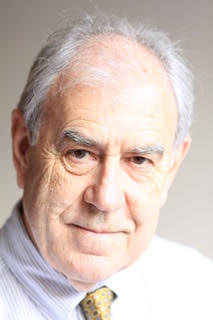Richard Butler. Ukraine, not Sarajevo
September 11, 2014
In recent months, theres been no shortage of suggestions, indeed warnings, that Russias absorption of Crimea and now its pressure on eastern Ukraine, is the equivalent of the assassination of the Austrian Archduke Ferdinand, in Sarajevo almost exactly 100 years ago: the shot heard around the world, which saw the beginning of the First World War just 37 days later.
This comparison is beguiling, neat, and I suspect it appeals particularly to those, such as Prime Minister Abbott, who have a very definite view that the world is simple. It includes bad people, all of whom are our enemies, and us and our friends, who are always good. Remember Abbotts use of the term baddies versus baddies when favoring Australian voters with his analysis of the situation in Syria.
Much more importantly, the comparison between the situation of a century ago in Central Europe and today, is wrong. It significantly misrepresents key facts of history. These relate to NATO not to Russia or President Putins current, disturbing and apparently deceptive, actions.
When the Berlin wall fell in 1990, and the question of the future of East Germany and the prospect of a united Germany was discussed between Soviet President Gorbachev and the western powers controlling West Berlin, newly available authentic records show that the latter allowed Gorbachev to believe that he had the assurance that NATO would not expand eastwards beyond a united Germany. This understanding and the financial incentives provided by the west to the USSR gained Soviet agreement to the reunification of Germany. Soviet forces then withdrew from East Germany.
Since that time NATO has expanded eastwards to include 12 States which had been in the Soviet sphere and the Warsaw pact, all of them measurably closer to Russia, 5 of them sharing borders with Russia. All of them enjoy the undertaking given in Article IV of the NATO treaty that any attack upon them would be considered to be an attack upon all treaty parties.
It is interesting that at the time the deal was done, Vladimir Putin was a member of the staff of the KGB office in Berlin.
Ukraines disposition was not at issue in those developments. Now, it is beyond doubt that Russia would find it unacceptable, for fundamental as well as historical reasons, for Ukraine to become the next eastern member of NATO.
The first step in the current serious dispute over Ukraine was the decision by the Yanukovich government in Kiev in late 2013, to sign a relationship agreement with the EU. This was seen in Moscow as presaging a drift by Ukraine towards NATO. Putin bought off Yanukovich with a financial package, but the people of western Ukraine then forced Yanukovich out. The people of Crimea and eastern Ukraine, predominantly sympathetic to Russia, but more importantly less than convinced that they would ever get a fair shake from Kiev, saw their future as best served by alignment with Russia: at least activists in those regions see it this way.
While these are issues internal to Ukraine, especially involving the skewed and corrupt nature of its politics since its independence from Russia was achieved 20 years ago, it would be willful blindness to ignore the NATO dimension.
A possible solution has been advanced by a leading member of the realist school of thought in international affairs, John Mearsheimer, Distinguished Professor of Political Science at Chicago University. He proposes a neutralized Ukraine, similar to that of Austria, following the Second World War. He argues, characteristically for a dedicated realist, that Russia should simply not be expected to accept the western military alliance moving up to the Ukrainian/ Russian border.
His proposal and an outline of the facts with regard to the understanding on the reunification of Germany, provided by Mary Elise Sarotte, Professor of History at the University of Southern California and Harvard, can be found in the September/October issue of Foreign Affairs.
Does Mearsheimer seriously suggest that absent such a solution, Donetsk will become Sarajevo? Probably not, but he does warn of the great danger in western refusal to accept the legitimacy of deeply felt Russian interests, which the Russians believe the west recognized when the Soviet imperium in Western Europe was dissolved.
Applying Mearsheimers realist reasoning, which I do not entirely accept, because of my persistent belief that there should be some principles in international relations, greater than that of self-interest, shouldnt there also be a warning about the dangers involved in great powers giving undertakings which they then break?
Mainly because the of the degree and quality of attention being given to solving the Ukraine problem by committed deeply informed and thoughtful people in governments and outstanding non-governmentalthink-tanks, which stands in stark contrast to the cavalier nonsense which passed for thinking about the problem in 1914, the history of Sarajevo will not be repeated.
Nor will Prime Minister Abbotts toe on this stage play a significant role. His warning to the Russians after the dreadful events of MH17, the threat to disinvite President Putin to the G20 meeting in Brisbane, for example, have plainly meant nothing of importance, except perhaps in his transparent calculation of domestic opinion within Australia. But that too would appear to be a miscalculation, in comparison with the obvious domestic concern, including within his own party, about broken electoral promises.
Repeated denial of plain facts will not alter them just as, in international relations, pugilism is not policy.
Richard Butler is a former Australian Ambassador to the United Nations, Head of the UN Special Commission to disarm Iraq, a Professor of International Affairs at Penn State University.
